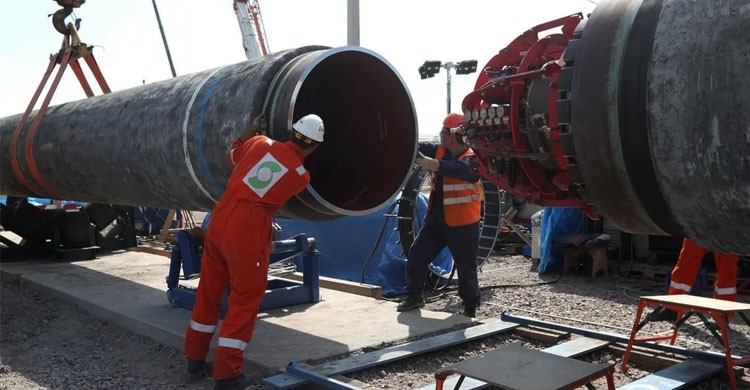Russia warns over oil import ban
08 March 2022, 02:00 pm | Updated: 18 April 2025, 01:01 pm

Fears of an energy war between Russia and the West grew on Tuesday after the United States pushed its allies to ban Russian oil imports as punishment for Moscow's invasion of Ukraine, where talks on humanitarian corridors made little progress.
Russia warned it could stop the flow of gas through pipelines from Russia to Germany in response to Berlin's decision last month to halt the opening of the controversial new Nord Stream 2 pipeline. Russia supplies 40% of Europe's gas.
"We have every right to take a matching decision and impose an embargo on gas pumping through the Nord Stream 1 gas pipeline," Russian Deputy Prime Minister Alexander Novak said on Monday.
Novak also warned that oil prices could more than double to $300 a barrel if the United States and its allies banned imports of Russian oil, a crucial source of revenue after the country was effectively frozen out of Western financial markets.
Analysts at Bank of America however said that if most of Russia's oil exports were cut off there could be a shortfall of 5 million barrels per day (bpd) or more, pushing prices as high as $200.
Oil prices see-sawed near 14-year highs on Tuesday, with Brent crude futures up $1.06, or 0.9%, at $124.27 a barrel at 0223 GMT, after trading as high as $125.19.
US President Joe Biden held a video conference call with the leaders of France, Germany and Britain on Monday as he pushed for their support to ban Russian oil imports.
But if need be the United States was willing to move ahead without allies in Europe, two people familiar with the matter told Reuters. Many countries on the continent are heavily reliant on Russian energy.
Russia's invasion, the biggest attack on a European state since World War Two, has created 1.7 million refugees, a raft of sanctions on Moscow, and fears of wider conflict as the West pours military aid into Ukraine.
Japan tightened its sanctions on Tuesday, freezing the assets of an additional 32 Russian and Belarusian officials and executives of companies with close ties to the government.
Russia calls its actions in Ukraine a "special operation" that it says is not designed to occupy territory but to destroy its southern neighbour's military capabilities and capture what it regards as dangerous nationalists.
KF/






















